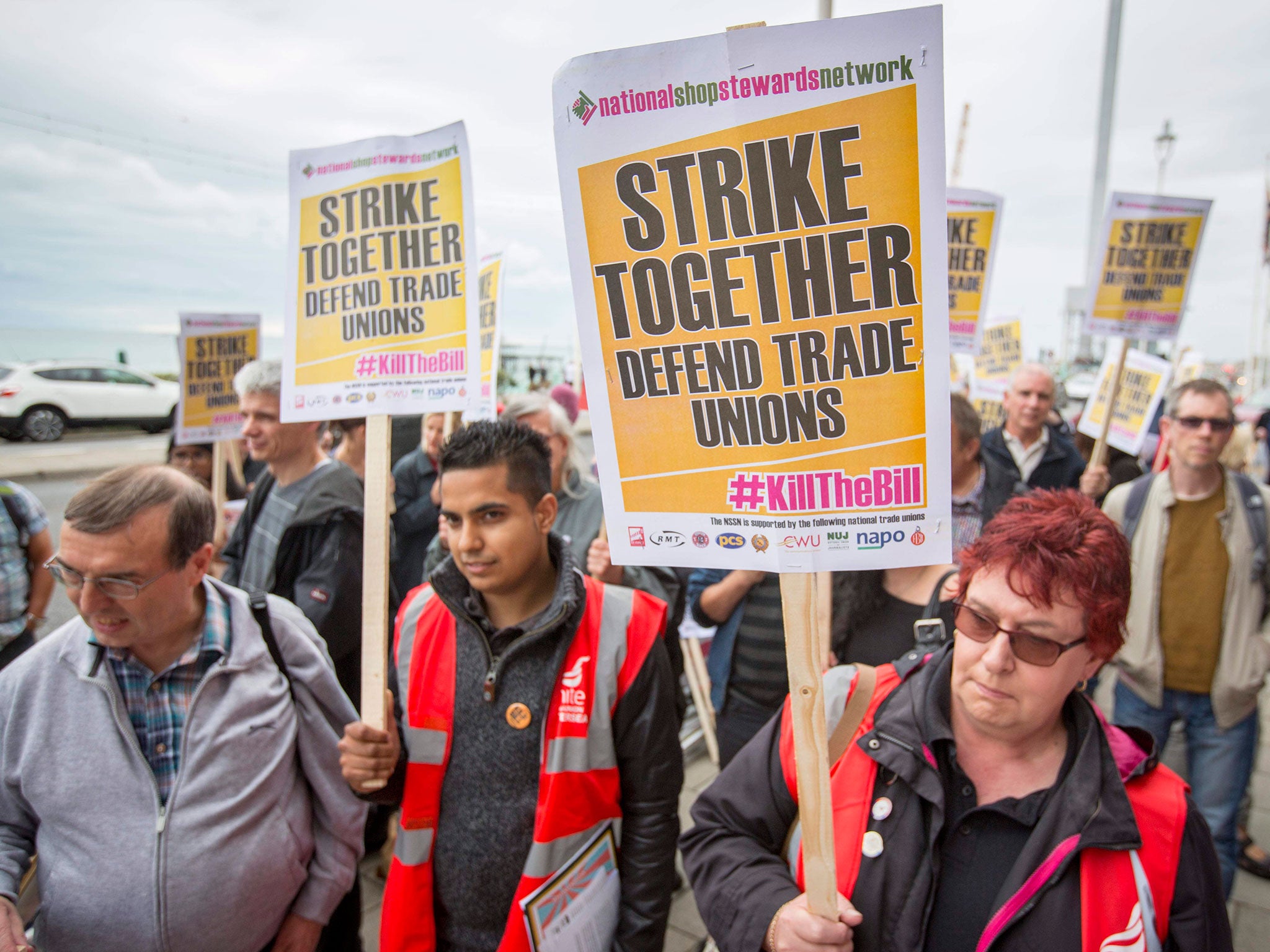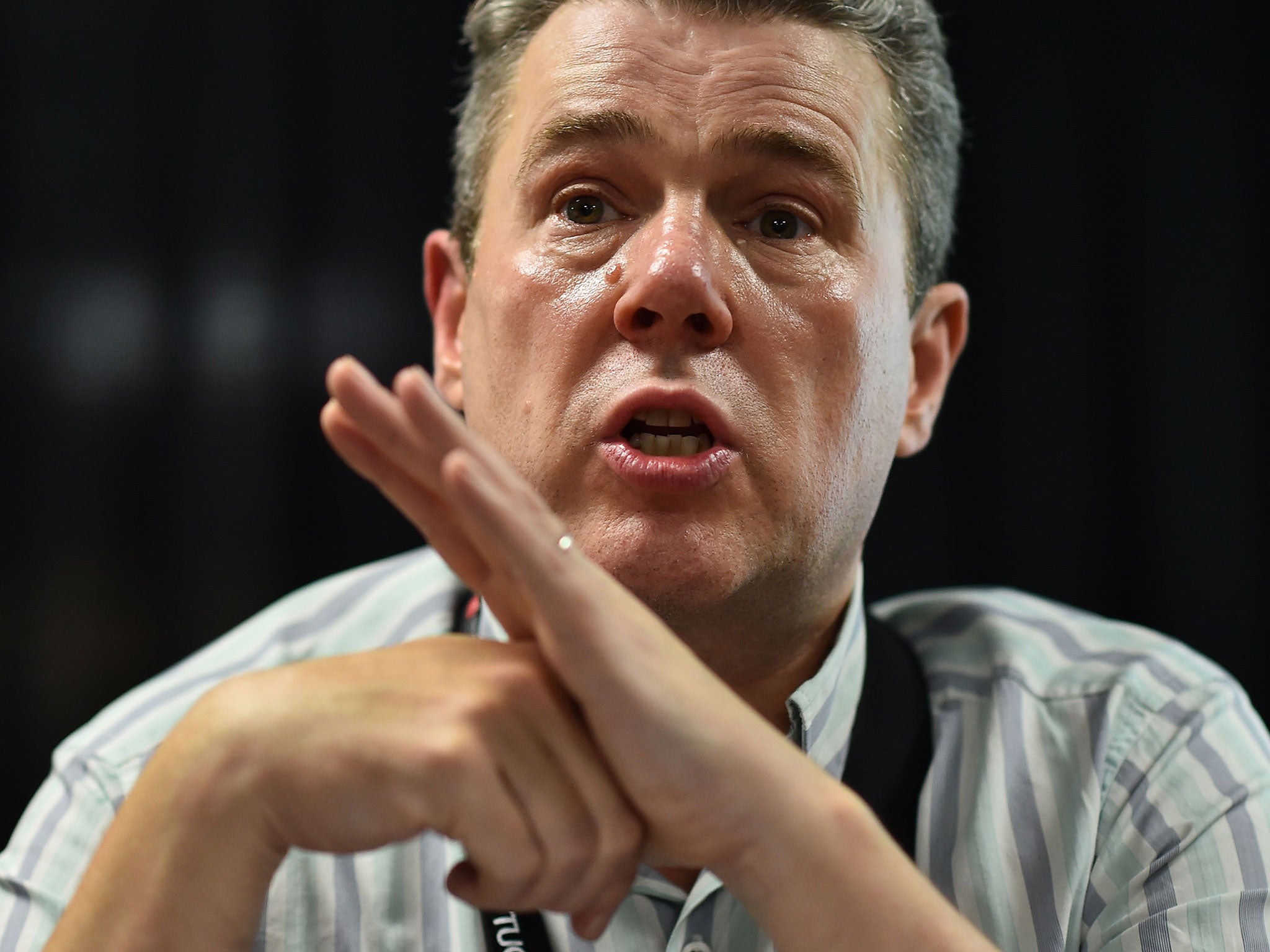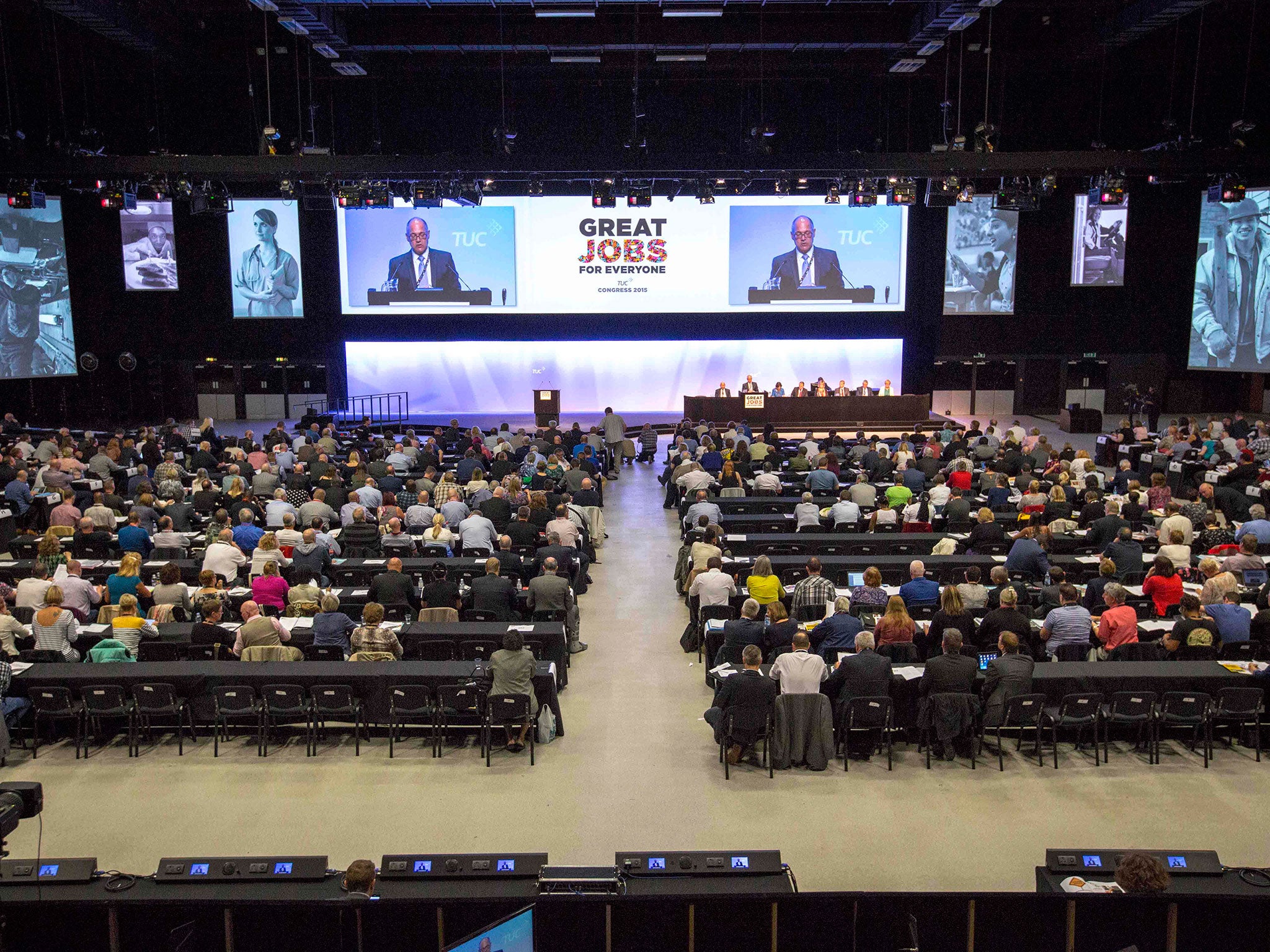Jeremy Corbyn's Labour leadership win emboldens trade unions to defy Tory sanctions
GMB chief Paul Kenny says he would go to prison over the Trade Union Bill

Your support helps us to tell the story
From reproductive rights to climate change to Big Tech, The Independent is on the ground when the story is developing. Whether it's investigating the financials of Elon Musk's pro-Trump PAC or producing our latest documentary, 'The A Word', which shines a light on the American women fighting for reproductive rights, we know how important it is to parse out the facts from the messaging.
At such a critical moment in US history, we need reporters on the ground. Your donation allows us to keep sending journalists to speak to both sides of the story.
The Independent is trusted by Americans across the entire political spectrum. And unlike many other quality news outlets, we choose not to lock Americans out of our reporting and analysis with paywalls. We believe quality journalism should be available to everyone, paid for by those who can afford it.
Your support makes all the difference.One of Britain’s most powerful union bosses has declared that he is ready to go to prison if the Conservatives pass a new law that would curtail the right to strike.
Paul Kenny, general secretary of the 619,000-strong general union, the GMB, made his comments on the eve of a Commons vote on the proposed Trade Union Bill. Union leaders suspect the timing of the parliamentary debate, on the first full day of the TUC annual conference, is a deliberate provocation, and that the Bill’s purpose is to make it virtually impossible for any group of workers to strike in protest against government-imposed austerity measures without breaking the law.
Left-wing union leaders have been buoyed by the election of Jeremy Corbyn as Labour leader, which they see as a sign public opinion is shifting in favour of direct action against the Government. Arriving in Brighton for the TUC annual conference, Mark Serwotka, head of the civil service union, the PCS, who was barred from voting in the leadership contest, said: “You’ll see lots of smiling faces this conference, unlike normally when we come and people look a bit miserable.”

Labour MPs are being urged by unions to be in the Commons on Monday to oppose the Bill, which will lay down that a strike ballot is invalid unless turnout is at least 50 per cent, and that strikes in key sectors such as the NHS, schools or transport will be banned unless 40 per cent of those eligible vote in favour of a strike. Union leaders point out there could be a strike ballot in which there was a 51 per cent turn out and a 79 per cent vote in favour of a strike, but the strike would be illegal.
The Government is also looking at a proposal that strikers will have to give employers and police two weeks’ notice of any announcements they plan to make on social media. Another is that every picket line would have to have a supervisor who would be compelled to wear an armband and carry a letter of authorisation. Not to do so would be a criminal offence – whereas in the past, conduct on a picket line has been governed by civil law rather than criminal law.
At a press conference in Brighton, before the TUC conference got under way, Mr Kenny said: “If it came to a question that someone had to go to prison, I would go up first. It wouldn’t worry me in the slightest. When you get a position where you are going to criminalise peaceful demonstrating to the point at which if someone hasn’t got an armband on you’re going to fine him £20,000 and if he won’t pay, you’re going to put him in jail – well, I’m going to turn up without an armband.”
Dave Prentis, leader of Unison, Britain’s second-biggest union, described the Bill as “vicious” and “vindictive”.He added: “It says that the chief picket has to give his or her name and address to the police. Now we understand it may say that all people standing outside a workplace will have to give their names and addresses to the police.

“That list will be kept. It will become a blacklist, and people will not get jobs because of it. We have got to seriously consider not giving names to the police. This Bill will put a lot of trade unions on the wrong side of the law, and we will have to make a decision – do we continue with the action we are taking, or let down our members? I know what my opinion is: we continue with the action. If that means we finish up in court, we will finish up in court.”
Mr Serwotka added: “If lay shop stewards get criminalised because they forgot to bring an armband or because we may get wrong the new laws on Twitter, then those laws are totally unjust and I think people will refuse to abide by them.”
Others in Brighton were more cautious about whether public opinion would support that sort of direct action. Asked about the implications of Mr Corbyn’s successful leadership election campaign, the TUC general secretary Frances O’Grady said: “Only the most hard-bitten cynic would not be impressed by the way this campaign seems to have taken off. But Labour isn’t just about being a party, it’s got to be an election-winning machine.”
David Davis MP, the Conservative former shadow home secretary, told Sky’s Murnaghan programme he thought most of the Bill “very sensible... but there are bits which look OTT, like requiring pickets to give their names to the police force. This isn’t Franco’s Britain, this is Queen Elizabeth II’s Britain.”
Subscribe to Independent Premium to bookmark this article
Want to bookmark your favourite articles and stories to read or reference later? Start your Independent Premium subscription today.
Join our commenting forum
Join thought-provoking conversations, follow other Independent readers and see their replies
Comments